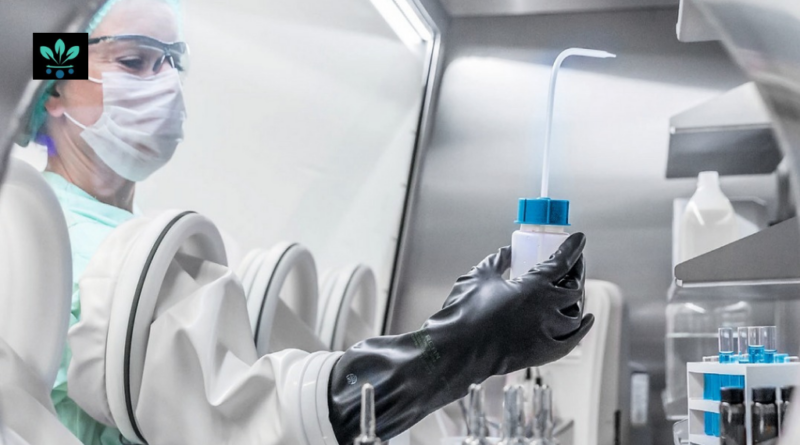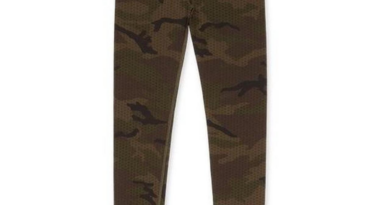Choosing the Right Chemical-Resistant Gloves for Your Industry
When working in industries that involve handling hazardous chemicals, selecting the right chemical-resistant gloves is essential for safety and efficiency. Whether you’re in pharmaceuticals, laboratories, or industrial manufacturing, the type of gloves you choose can make a significant difference in protecting against chemical exposure, abrasions, and punctures. With various materials and designs available, understanding the right fit for your specific application is crucial.
Understanding Chemical Resistance in Gloves
Not all gloves provide the same level of protection against chemicals. Different materials react differently when exposed to hazardous substances, making it important to match the glove material to the chemicals being handled.
Key Factors to Consider
- Chemical Compatibility – The most important factor is whether the glove material can withstand prolonged exposure to specific chemicals. Materials like butyl, CSM (Chlorosulfonated Polyethylene), and Hypalon gloves offer high resistance against corrosive substances.
- Glove Length & Coverage – Depending on your work environment, you might need different glove lengths. Short gloves offer dexterity for precision tasks, while long rubber gloves and rubber sleeve combinations provide extended protection for handling aggressive chemicals.
- Durability & Strength – Industrial applications often require gloves that can resist abrasions, punctures, and tears. ELS gloves, for instance, are designed to withstand extreme conditions while ensuring safety.
- Grip & Dexterity – In settings like pharmaceuticals or research laboratories, handling delicate instruments requires a balance between protection and tactile sensitivity. Choosing the right material ensures safety without compromising functionality.
Types of Chemical-Resistant Gloves
Understanding the different materials available will help you select the best gloves for your specific needs.
1. Butyl Gloves: Superior Protection Against Gas & Vapors
Butyl gloves are widely used in industries that require protection against gases and hazardous liquids. Their high resistance to ketones, esters, and acids makes them ideal for chemical and pharmaceutical industries.
Best for:
✔️ Handling corrosive chemicals
✔️ Laboratories & research facilities
✔️ Working with toxic gases and esters
2. CSM (Chlorosulfonated Polyethylene) Gloves: High Durability & Chemical Resistance
CSM, commonly known as Hypalon gloves, provides excellent resistance to oxidizing chemicals, acids, and radiation exposure. Their durability makes them a preferred choice in nuclear and industrial applications.
Best for:
✔️ Chemical processing industries
✔️ Heavy-duty industrial work
✔️ Exposure to radiation & extreme conditions
3. Rubber Gloves: Versatile & Cost-Effective
Rubber gloves are a common choice in industries where mild to moderate chemical exposure is present. Available in different lengths and thicknesses, they are flexible and affordable.
Best for:
✔️ General laboratory work
✔️ Cleaning & maintenance tasks
✔️ Light chemical handling
4. Piercan Gloves: Premium Protection for Specialized Applications
For industries that demand precision and uncompromised safety, Piercan gloves Singapore are a trusted option. These gloves are designed for highly specialized industries such as pharmaceuticals, aerospace, and nuclear sectors.
Selecting the Right Glove for Your Industry
Different industries have varying glove requirements. Here’s a quick guide:
- Pharmaceutical & Research Labs – Butyl gloves for chemical resistance and dexterity.
- Manufacturing & Chemical Processing – CSM or Hypalon gloves for durability.
- Cleaning & Maintenance – Rubber gloves for cost-effective protection.
- Nuclear & Aerospace Industries – Piercan gloves for specialized applications.
Hy Polyequipment: Delivering Reliable Safety Solutions
When selecting chemical-resistant gloves, it’s essential to source them from a reliable supplier. Hy Polyequipment, a trusted Lab Equipment Supplier, collaborates with Piercan and GDI Solutions to provide high-quality scientific, laboratory, and experimental equipment. Their extensive range of gloves ensures industries receive premium protection tailored to their needs.
Conclusion
Selecting the right chemical-resistant gloves is a critical safety decision for any industry. Understanding the materials, durability, and application ensures workers remain protected while maintaining efficiency. Whether you require long rubber gloves for extended coverage, short gloves for precision tasks, or Piercan gloves Singapore for high-end protection, choosing the right fit is key to ensuring safety and performance.




